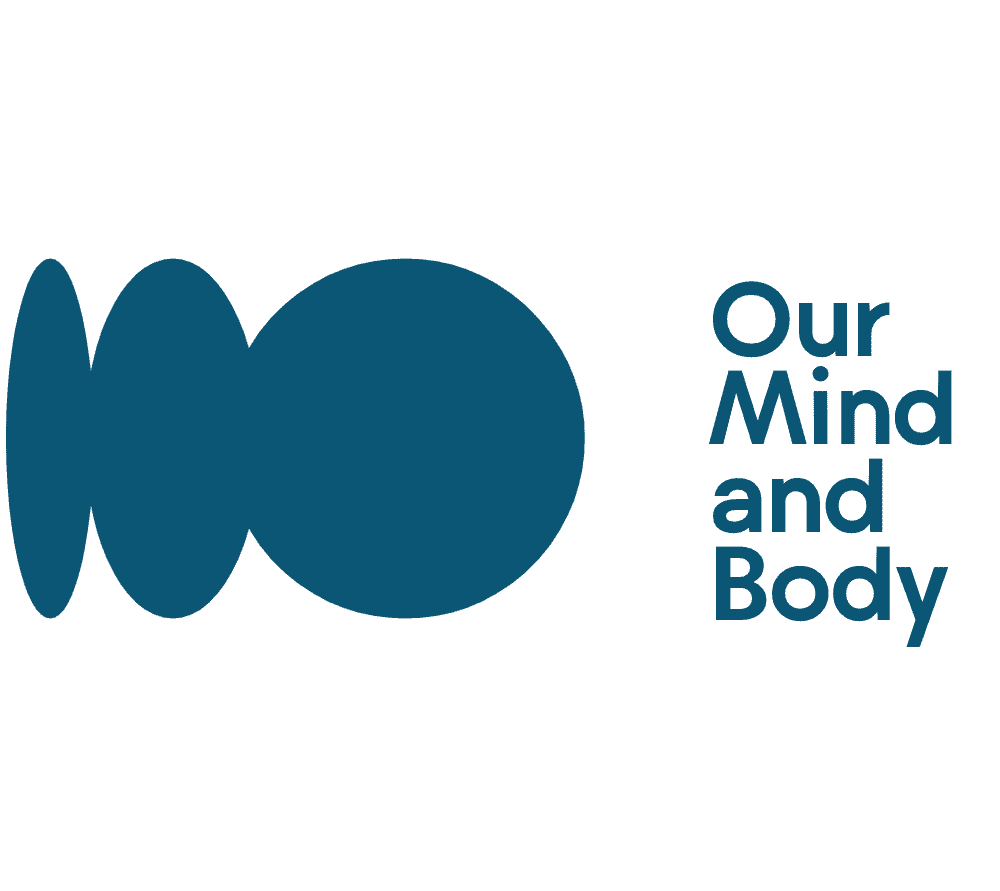Mindfulness
The Impact Of Skipping Sleep Meditations On College Grades

Have you ever thought about the impact of missing sleep meditations on your college performance?
Sleep meditations, designed to promote relaxation and reduce stress, play a crucial role in maintaining healthy sleep patterns. Without them, individuals may experience difficulties concentrating and suffer from impaired memory function, potentially leading to lower academic performance.
Additionally, the absence of sleep meditations can contribute to constant stress, irritability, and emotional triggers, further hindering one’s ability to excel academically.
In this article, we will explore the impact of skipping sleep meditations on college grades, highlighting the importance of incorporating these practices into our daily routines for improved cognitive abilities and academic success.
Key Takeaways
- Skipping sleep meditations can disturb sleep patterns and lead to a lack of opportunity to recover from a hard day, resulting in minimal concentration for the next day and an increased risk of experiencing drowsiness.
- Without sleep meditations, individuals may have difficulty remembering information, including professor’s lectures, leading to lower grades due to impaired memory function.
- Constant stress and irritability can result from a lack of sleep, leading to extreme tiredness, inability to focus, increased irritability, and emotional triggers, which can negatively impact academic performance.
- Incorporating sleep meditations into one’s routine can contribute to better academic performance by improving concentration and focus, enhancing memory function, reducing stress levels, and promoting better cognitive abilities.
Definition and Purpose
Sleep meditations are defined as practices designed to help individuals relax, eliminate stress, and quiet obsessive thoughts, allowing them to enter a trance-like state and disconnect from the outside world.
These meditations are specifically created for individuals with insomnia and nervous system disorders, aiming to improve their psycho-emotional state after a few weeks of regular practice.
The benefits of sleep meditations include relaxation and stress relief, as well as the ability to train the body and mind to switch between the physical and spiritual world.
By incorporating sleep meditations into one’s routine, individuals can experience improved overall mental well-being and a greater sense of calm and tranquility.
These practices have been shown to promote better sleep patterns, increased concentration, and enhanced emotional well-being, all of which can have a positive impact on academic performance.
Effects on Sleep Pattern
Neglecting the practice of sleep meditations has been found to disrupt the regular sleep patterns of individuals, with studies reporting an average decrease in total sleep time by 1 hour and 15 minutes per night. This disturbance in sleep can have significant consequences on an individual’s overall well-being and academic performance.
The effects of skipping sleep meditations on sleep patterns can lead to disturbed sleep, characterized by difficulties falling asleep and staying asleep throughout the night. This can result in feeling tired and groggy the next day, making it challenging to concentrate and focus during lectures or study sessions.
Additionally, decreased focus and concentration are common consequences of skipping sleep meditations. Without the relaxation and stress-relieving benefits of these practices, individuals may experience difficulty in maintaining attention and retaining information. This can ultimately impact their ability to perform well on exams and assignments, leading to lower grades.
Engaging in regular sleep meditations can help regulate sleep patterns and improve focus, contributing to better academic performance. It is important for college students to recognize the significance of incorporating these practices into their evening routine to promote healthy sleep habits and enhance their cognitive abilities.
Effects on Concentration
Engaging in regular sleep meditations has been shown to enhance cognitive abilities and improve focus and concentration among college students. However, skipping sleep meditations can have detrimental effects on concentration.
Impaired focus is one of the main consequences of neglecting sleep meditations. Without the relaxation and stress-relief provided by these practices, students may find it difficult to concentrate on their tasks and experience decreased productivity. The lack of mental clarity and calmness can hinder their ability to stay focused for extended periods of time, leading to suboptimal performance.
Additionally, the absence of sleep meditations can disrupt the body’s natural rhythm, making it harder for students to maintain sustained attention and engage in tasks that require high levels of concentration.
Therefore, incorporating sleep meditations into one’s routine is crucial for maintaining optimal focus and productivity in college.
Effects on Short-Term Memory
The absence of these mindfulness practices can have adverse effects on the ability to retain and recall information in the short-term, potentially hindering academic performance. Sleep meditations play a crucial role in memory consolidation and without them, the retention of information becomes impaired.
The practice of sleep meditations allows the brain to process and store newly acquired knowledge effectively. Cognitive decline can be observed in individuals who do not engage in sleep meditations, as they struggle to remember information, including lectures from professors. This impaired retention ultimately leads to lower grades and a decreased ability to handle the required amount of data.
Sleep meditations act as a last chance to induce sleep and enhance neural connections, enabling optimal brain function. Therefore, the incorporation of sleep meditations into one’s routine is essential for maintaining short-term memory and achieving academic success.
Effects on Long-Term Memory
The absence of regular sleep meditations can have a profound and lasting impact on an individual’s ability to retain and consolidate information in their long-term memory, potentially hindering their academic success.
Sleep meditations play a crucial role in cognitive function, as they assist in the consolidation of information into long-term memory. Without the aid of sleep meditations, individuals may experience impaired information retention, making it difficult to recall important concepts and lectures.
The practice of sleep meditations facilitates the transfer of information from short-term to long-term memory, allowing for better recall and understanding of academic material.
Therefore, neglecting sleep meditations can result in a decreased ability to retain and retrieve information, ultimately affecting academic performance and hindering the achievement of academic success.
Constant Stress and Irritability
The previous subtopic discussed the effects of skipping sleep meditations on long-term memory.
Now, let us delve into another significant consequence of neglecting sleep meditations: constant stress and irritability. Lack of sleep meditations can lead to extreme tiredness and an inability to focus, which can have negative consequences on one’s emotional well-being.
This can manifest as an increased irritability and a higher likelihood of experiencing emotional triggers. The constant stress resulting from the lack of sleep meditations can further exacerbate these negative emotions, potentially leading to rude behavior towards friends or professors.
It is crucial to recognize the importance of sleep meditations for emotional well-being, as they can help reduce stress levels and improve cognitive abilities. Incorporating sleep meditations into one’s routine can provide a tool for achieving academic success and maintaining a positive emotional state.
Importance for Academic Success
Incorporating sleep meditations into one’s daily routine has been shown to significantly enhance academic performance, as it fosters improved concentration, heightened focus, and enhanced memory function, ultimately leading to a higher likelihood of achieving academic success. By engaging in sleep meditations, individuals can improve their ability to focus on tasks, reducing distractions and increasing productivity. Additionally, sleep meditations have been found to reduce anxiety levels, allowing students to approach their academic responsibilities with a calmer and clearer mindset. This can lead to better decision-making and problem-solving skills, which are crucial for academic success. Research has also shown that sleep meditations can enhance memory function, aiding in the retention and recall of information learned in lectures and study sessions. Overall, incorporating sleep meditations into one’s routine can have a profound positive impact on academic performance.
| Benefits of Incorporating Sleep Meditations into Daily Routine |
|---|
| Improved concentration |
| Heightened focus |
| Enhanced memory function |
| Reduced anxiety levels |
Benefits of Sleep Meditations
By regularly practicing sleep meditations, individuals can experience a range of benefits that contribute to their overall well-being and academic success.
Sleep meditations have been shown to improve cognitive abilities and enhance emotional well-being. Through the practice of sleep meditations, individuals can enhance their concentration and focus, leading to improved academic performance. Additionally, sleep meditations have been found to enhance memory function, allowing individuals to better retain and recall information.
By reducing stress levels, sleep meditations also contribute to better cognitive abilities, as stress can impair cognitive function. Overall, incorporating sleep meditations into one’s routine can have a positive impact on both mental and academic performance.
It is recommended to allocate 10-20 minutes before bed for sleep meditations to reap these benefits.
Frequently Asked Questions
How long does it typically take for sleep meditations to start improving one’s psycho-emotional state?
The effectiveness of sleep meditations in improving one’s psycho-emotional state can vary. However, with regular practice, individuals may start experiencing benefits in their psycho-emotional state after a few weeks of consistent engagement in sleep meditations.
Can lack of sleep meditations lead to long-term sleep disturbances?
The lack of sleep meditations can have long-term effects on sleep quality. Research suggests that individuals who do not engage in sleep meditations may experience disturbances in their sleep patterns, leading to difficulties in falling asleep and maintaining a restful sleep state.
Are there any alternative methods or practices that can be used to relax and reduce stress if sleep meditations are not utilized?
Alternative relaxation methods and stress reduction techniques can be used if sleep meditations are not utilized. These may include deep breathing exercises, progressive muscle relaxation, mindfulness meditation, yoga, and aromatherapy, which have been shown to promote relaxation and reduce stress.
What are the potential consequences of impaired memory function on college grades?
What are the potential consequences of impaired memory function on college grades? Impaired memory function can lead to difficulty in remembering information, including lectures, resulting in lower grades. It is crucial to address sleep meditations for memory consolidation and academic success.
Is there a recommended frequency or duration for practicing sleep meditations in order to achieve optimal academic performance?
There is no specific recommended frequency or duration for practicing sleep meditations to achieve optimal academic performance. However, regular practice of 10-20 minutes before bed can contribute to improved concentration, memory function, and reduced stress levels, all of which can enhance academic success.
Say hello to Cypress, the soulful wordsmith behind the insightful articles at OurMindAndBody.com. Cypress is a gifted writer who weaves words with grace and precision, using language as a powerful tool to inspire, heal, and uplift the spirits of readers.
With a background in literature and a passion for personal growth, Cypress brings a unique perspective to the world of well-being and spirituality. Having experienced the transformative effects of meditation and yoga firsthand, Cypress is deeply connected to the essence of these practices and their potential to enrich lives.
Mindfulness
Psychological Strategies For Dental Anxiety Relief

Envision yourself in the dental chair, your heart pounding, hands slick with sweat, and a surge of anxiety overwhelming you. Feeling anxious about dental appointments is a widespread issue, turning these visits into dreadful experiences for numerous individuals.
But fear not, because there are psychological strategies that can help alleviate this anxiety and make dental appointments a more pleasant experience. In this article, I will explore various techniques such as mindfulness and distraction, as well as the benefits of seeking professional support.
By implementing these strategies, you can conquer dental anxiety and take control of your oral health.
Key Takeaways
- Dental anxiety can lead to avoidance or delay of dental treatment, resulting in poor oral health and hygiene.
- Acknowledging dental anxiety is the first step towards finding a solution and seeking appropriate help and treatment.
- Mindfulness techniques, such as deep breathing exercises and body relaxation scans, can help in overcoming dental anxiety.
- Distracting techniques, such as focusing on other things in the dental office and using mental exercises to divert thoughts, can be effective in managing dental anxiety during visits.
Definition and Effects
Dental anxiety, defined as anxiety, fear, or stress associated with visiting a dental setting, can have detrimental effects on oral health. This includes the delay or avoidance of necessary dental appointments and an increased risk of dental diseases.
When individuals experience dental anxiety, they may avoid seeking dental treatment altogether, leading to the deterioration of their oral health. This can result in the escalation of dental problems, such as cavities or gum disease, which require immediate attention.
Moreover, dental anxiety can hinder individuals from maintaining proper oral hygiene and care, further exacerbating their dental issues.
It is crucial to acknowledge the impact of dental anxiety on oral health and take proactive steps towards addressing this issue. By seeking appropriate help and treatment, individuals can overcome dental anxiety and improve their overall well-being.
Acknowledging Dental Anxiety
Addressing dental anxiety begins with acknowledging and understanding the fear and stress associated with dental visits. It is important to recognize that dental anxiety is a real and valid concern that many individuals experience. By acknowledging dental anxiety, we can take the necessary steps towards finding a solution and seeking appropriate help and treatment.
Here are four key reasons why acknowledging dental anxiety is crucial:
-
Validating emotions: Acknowledging dental anxiety validates the emotions and experiences of those who suffer from it. It lets individuals know that their feelings are understood and taken seriously.
-
Seeking help: Acknowledging dental anxiety allows individuals to recognize that they don’t have to face it alone. It encourages them to seek professional guidance and support, leading to effective strategies for managing their anxiety.
-
Raising awareness: Acknowledging dental anxiety increases awareness and understanding of the problem. By openly discussing it, we can break the stigma surrounding dental anxiety and promote empathy and support in dental settings.
-
Empowering individuals: Acknowledging dental anxiety empowers individuals to take control of their oral health. It helps them understand that they have the ability to overcome their fears and improve their dental experiences through various psychological techniques and treatments.
By acknowledging dental anxiety, we can create a more compassionate and understanding environment that supports individuals in managing their dental fears and ultimately improving their oral health and overall well-being.
Mindfulness Techniques
Implementing mindfulness techniques has helped me find relaxation and peace during dental visits. By harnessing the power of my mind, I am able to create a calm and soothing environment within myself, even in the dental setting.
Deep breathing exercises have been particularly helpful in reducing my anxiety and promoting a sense of tranquility. Engaging in body relaxation scans allows me to release tension and focus on the present moment, rather than worrying about the dental procedure.
Cultivating a settled mind has been crucial for achieving a successful outcome during my dental visits. Through mindfulness, I have learned to acknowledge my dental anxiety and address it in a proactive and effective manner.
It has truly transformed my dental experience, allowing me to approach appointments with a sense of ease and confidence.
Distracting Techniques
During my dental visits, I find it helpful to focus on other things in the office to divert my attention away from anxiety triggers. By redirecting my attention, I am able to reduce my anxiety and create a more positive experience. There are various distracting techniques that can be used to manage dental anxiety. These techniques involve engaging in mental exercises, such as counting or reciting a poem, to divert my thoughts. Additionally, I practice relaxation techniques, such as deep breathing or progressive muscle relaxation, during the dental visit to promote a sense of calmness. I also find it beneficial to bring headphones and listen to soothing music or podcasts to distract myself from the dental procedures. By using these distracting techniques, I am able to alleviate my dental anxiety and have a more pleasant experience at the dentist’s office.
| Distracting Techniques for Dental Anxiety Relief |
|---|
| Engage in mental exercises to divert thoughts |
| Practice relaxation techniques during the visit |
| Listen to soothing music or podcasts |
Psychological Treatment
Seeking professional help for my dental anxiety has been incredibly beneficial in overcoming my fear and improving my overall well-being. Through psychological treatment, I have gained a better understanding of the mindset and perception behind my anxiety, allowing me to tackle it head-on.
Here are five key benefits I have experienced:
-
Breaking the cycle: Psychological treatment has helped me break the cycle of dental anxiety by addressing the underlying causes and developing coping mechanisms.
-
Overcoming fear and anxiety: With the guidance of a professional, I have learned techniques to manage my anxiety during dental visits, enabling me to undergo necessary treatments with much less fear.
-
Improving oral health and hygiene: By addressing my dental anxiety, I have been able to attend regular dental appointments, leading to improved oral health and hygiene.
-
Enhancing overall well-being: Overcoming my dental anxiety has not only improved my oral health but has also had a positive impact on my overall well-being, reducing stress and improving my quality of life.
-
Empowerment: Through psychological treatment, I have gained a sense of empowerment and control over my dental anxiety, allowing me to face my fears and conquer them.
Overall, psychological treatment has been instrumental in helping me overcome my dental anxiety and improve my oral health and well-being.
Benefits of Treatment
Through professional help, I have experienced numerous advantages in overcoming my dental anxiety and improving my overall well-being. Psychological treatment for dental anxiety has been a game-changer for me. It has not only helped me conquer my fear and anxiety associated with dental visits but has also had a positive impact on my oral health and hygiene. The benefits of psychological treatment are far-reaching. It breaks the cycle of dental anxiety, allowing me to attend necessary dental appointments without fear or stress. This, in turn, has improved my oral health and prevented the escalation of dental problems. Moreover, psychological treatment has enhanced my overall well-being and quality of life, as I no longer have to endure the negative physical and emotional consequences of dental anxiety.
| Benefits of Psychological Treatment for Dental Anxiety |
|---|
| Overcoming fear and anxiety associated with dental visits |
| Improving oral health and hygiene |
| Enhancing overall well-being and quality of life |
The table above summarizes the key benefits of psychological treatment for dental anxiety. It highlights the positive outcomes that can be achieved through seeking professional help and implementing recommended psychological strategies. By addressing the psychological aspects of dental anxiety, individuals can experience relief, improve their oral health, and enhance their overall well-being.
Common Problem
Dealing with dental anxiety is a common challenge that many individuals face. It’s important to recognize that you are not alone in this struggle. Dental anxiety affects a significant number of people and can have a profound impact on their oral health and overall well-being.
The fear and stress associated with dental visits can lead to avoidance or delay of necessary treatment, putting your oral health at risk. However, there is hope. By acknowledging your dental anxiety and seeking appropriate help and treatment, you can overcome this hurdle.
Psychological strategies, such as mindfulness and distraction techniques, along with professional guidance, can provide effective relief. Remember, taking steps to address your dental anxiety not only improves your oral health but also enhances your overall experience and quality of life.
Effective Solutions
By acknowledging my dental fears and reaching out for help, I can find effective solutions to overcome my anxiety. There are several psychological strategies that have been proven to be effective in relieving dental anxiety:
-
Mindfulness techniques: By harnessing the power of the mind, I can practice deep breathing exercises and engage in body relaxation scans. This helps me to relax and cultivate a settled mind, leading to a successful dental visit.
-
Distracting techniques: Focusing on other things in the dental office and redirecting my attention away from anxiety triggers can be helpful. I can use mental exercises to divert my thoughts and engage in relaxation techniques during the dental visit.
-
Psychological treatment: Recognizing dental anxiety as a psychological problem is important. Seeking professional guidance and support allows me to understand the mindset and perception behind my anxiety. Implementing recommended psychological tips and processes can help me overcome fear and anxiety associated with dental visits.
-
Benefits of psychological treatment: Overcoming dental anxiety not only improves my oral health and hygiene but also breaks the cycle of dental anxiety. It enhances my overall well-being and quality of life.
Frequently Asked Questions
How does dental anxiety affect the physical health of individuals?
Dental anxiety can negatively impact physical health by leading to avoidance of necessary dental appointments, increased risk of dental diseases, and poor oral hygiene. Seeking treatment for dental anxiety is crucial for improving overall oral health.
Can dental anxiety be completely cured with psychological treatment?
Dental anxiety can be effectively managed and greatly reduced with psychological treatment. While complete cure may vary, seeking professional help and implementing recommended strategies can significantly alleviate anxiety, improving oral health and overall well-being.
Are there any alternative treatments for dental anxiety besides psychological strategies?
Yes, there are alternative treatments for dental anxiety besides psychological strategies. Some options include sedation dentistry, acupuncture, hypnosis, and cognitive behavioral therapy. It’s important to discuss these options with a dental professional to find the best approach for you.
How common is dental anxiety among the general population?
Dental anxiety is quite common among the general population. Many individuals experience anxiety, fear, or stress when visiting the dentist. It is important to acknowledge and address dental anxiety in order to find effective solutions and improve oral health.
Are there any long-term benefits of overcoming dental anxiety?
Overcoming dental anxiety has numerous long-term benefits. It allows individuals to receive necessary dental treatment, improve their oral health and hygiene, break the cycle of anxiety, and enhance overall well-being and quality of life.
Conclusion
In conclusion, overcoming dental anxiety is not an insurmountable task. By implementing psychological strategies, such as mindfulness techniques and distracting exercises, individuals can take control of their anxiety and have a more positive dental experience.
Seeking professional guidance and support is crucial in addressing the underlying psychological factors contributing to dental anxiety. Remember, the key is to break the cycle of fear and anxiety associated with dental visits, leading to improved oral health and overall well-being.
So take a deep breath, envision yourself sailing through the dental chair like a fearless captain on calm waters, and embark on the journey towards dental anxiety relief.
Meet Nadi, the soulful writer and explorer of inner realms who graces OurMindAndBody.com with her profound insights and heartfelt wisdom. With a profound passion for mindfulness, meditation, and spiritual growth, Nadi weaves words that touch the hearts and minds of readers, leaving a lasting impact on their well-being journey.
Rooted in a background of philosophy and psychology, Nadi’s curiosity about the human mind and the mysteries of the soul led her on a transformative path of self-discovery. Drawn to the transformative power of mindfulness and meditation, she embarked on a quest to understand the intricacies of these practices, not only for her own growth but also to inspire others to embark on their own inner journeys.
Mindfulness
Sleep, Nutrition, And Success: A Guide To Thriving During University Exams

Before the break of dawn, while the globe is in slumber, a student lies awake, their mind buzzing with the anticipation of upcoming university exams. This period is marked by tension, worry, and strain, yet it also presents an opportunity to demonstrate one’s capabilities and attain achievement.
In this guide, we will explore the powerful connection between sleep, nutrition, and academic performance. By understanding the importance of restful sleep, fueling our bodies with wholesome foods, and implementing practical strategies, we can conquer exams with clarity, focus, and the confidence to thrive.
Key Takeaways
- Getting enough sleep is crucial for repairing processes in the body and improving test performance.
- Creating a sleep-friendly environment by sleeping in a dark and quiet space, using a sleep mask, and eliminating distractions can promote better sleep.
- Consuming a light, protein-rich snack before sleep, such as low-fat milk or yogurt, can aid in falling asleep.
- Planning ahead, organizing tasks, and following a set schedule can reduce stress, improve efficiency, and promote better sleep.
Preparing for Exams
I need to plan ahead and prioritize my tasks in order to effectively manage my time and prepare for exams. Research has shown that having a clear plan for the next day’s tasks promotes better sleep and reduces stress.
By organizing and prioritizing my tasks, I can improve my time management skills and ensure that I am using my study time efficiently. Breaking down my study materials into smaller, manageable chunks will also help increase my productivity and focus.
Additionally, making a to-do list before bed can help reduce worry and anxiety, allowing me to relax and get a good night’s sleep. By following these strategies, I can create a solid foundation for success during my university exams.
Importance of Sleep
Prioritizing sufficient rest is crucial for optimizing academic performance and cognitive function during the intense demands of university exams. Sleep plays a vital role in memory consolidation and test performance, so it’s important to establish a regular sleep schedule. Creating a sleep-friendly environment can enhance the quality of your sleep, such as sleeping in a dark and quiet space or using a sleep mask. Snacking before sleep can aid in falling asleep, but it’s important to choose light, protein-rich snacks like low-fat milk or yogurt. Planning ahead and organizing tasks can alleviate stress and improve productivity. Effective time management allows for a balanced schedule and reduces the need for late-night studying. Lastly, maintaining a healthy diet, packing nutritious meals, eating a healthy breakfast, and staying hydrated are all essential for overall well-being and academic success during exams.
| Tips for Better Sleep | Benefits of Planning Ahead | Importance of Time Management | Benefits of a Healthy Diet |
|---|---|---|---|
| Sleep in a dark, quiet space | Reduce worry and anxiety | Improve efficiency | Support overall health |
| Use a sleep mask | Promote better sleep | Reduce stress | Brain function |
| Create a comfortable sleep environment | Improve time management | Improve well-being | Healthy food choices |
| Eliminate distractions in the bedroom | Alleviate stress | Aid in meeting deadlines | Varied diet |
| Invest in blackout curtains or earplugs | Improve productivity | Achieving goals |
Creating a Sleep-friendly Environment
Creating a sleep-friendly environment involves ensuring that the bedroom is dark and quiet, using a sleep mask if necessary, and eliminating any distractions that may disrupt sleep. Here are three tips to create the perfect sleep environment:
-
Invest in blackout curtains or blinds to block out any outside light. Darkness promotes the release of melatonin, the hormone that regulates sleep.
-
Use earplugs or a white noise machine to drown out any noise that may disturb your sleep. Silence or soothing sounds can help you relax and fall asleep faster.
-
Keep your bedroom free from electronic devices, such as phones or tablets, which emit blue light that can interfere with your sleep. Create a technology-free zone to promote a restful sleep.
By implementing these strategies, you can create a peaceful and sleep-inducing environment that will help you get the restful sleep you need during university exams.
Snacking Before Sleep
To enhance my sleep quality, I often enjoy a light, protein-rich snack before bed. Consuming foods like low-fat milk or yogurt can promote better sleep. These protein-rich snacks provide the body with the necessary amino acids to support the production of sleep-inducing hormones, such as serotonin and melatonin.
Avoiding heavy meals close to bedtime is recommended as they can cause discomfort and disrupt sleep. By choosing healthy snacks, I am not only promoting better sleep but also contributing to my overall well-being.
It is important to find the right balance between hunger and sleep, as going to bed hungry can also interfere with falling asleep. By incorporating a light, protein-rich snack into my routine, I am taking a practical step towards improving my sleep quality during university exams.
Planning Ahead
When I make a to-do list before bed, I find that I am able to reduce worry and anxiety, which helps me sleep better and wake up feeling more organized and prepared for the day ahead. Planning ahead is an essential strategy for success during university exams. Here are three key reasons why planning ahead is important:
-
Reducing Stress: By organizing and prioritizing tasks, you can alleviate stress and create a sense of control over your workload. Knowing what needs to be done allows you to tackle each task methodically, reducing the feeling of being overwhelmed.
-
Improved Time Management: Planning ahead helps you make the most of your time. By breaking tasks into smaller, manageable chunks, you can increase productivity and efficiency. Following a set schedule also reduces the need for late-night work, allowing for better sleep and overall well-being.
-
Enhanced Productivity: Having a plan for the next day’s tasks allows you to hit the ground running. By reminding yourself of your plan, you can start your day with focus and purpose, maximizing your productivity and achieving your goals.
By incorporating the practice of planning ahead into your routine, you can reduce stress, manage your time effectively, and increase your productivity during university exams.
Time Management
I prioritize tasks and follow a set schedule to effectively manage my time. Planning and scheduling tasks in advance has been crucial in improving my efficiency and reducing stress during university exams.
Breaking down tasks into smaller, manageable chunks has allowed me to be more productive and meet deadlines. By organizing and prioritizing my tasks, I can allocate the appropriate amount of time for each one, ensuring that I am not overwhelmed with last-minute work.
This approach has also reduced the need for late-night studying, allowing me to get enough sleep and maintain a healthy balance between work and rest. Effective time management has not only improved my academic performance but also my overall well-being during the exam period.
Importance of a Healthy Diet
Now that we’ve discussed the importance of effective time management during university exams, let’s shift our focus to another crucial aspect of thriving during this challenging period: maintaining a healthy diet.
A nutritious diet plays a vital role in supporting our overall well-being and academic performance. Opting for nutritious foods, such as fruits, vegetables, and whole grains, provides essential nutrients for optimal brain function. On the other hand, avoiding junk food and sugary drinks can help us stay focused and energized while studying.
Planning meals ahead of time ensures that we make healthier food choices and reduces our reliance on vending machines. By including a balance of protein, fats, and carbohydrates in our snacks, we can sustain our energy levels throughout the day.
Prioritizing homemade meals over fast food contributes to better health and provides us with the nutrients we need to succeed during exams. Remember, a healthy diet is a key ingredient in our recipe for success.
Packing Healthy Meals
Packing a balanced lunch and snacks ensures that I have nutritious options to fuel my body and brain during intense study sessions. It’s important to prioritize homemade meals over fast food, as they contribute to better health. By preparing meals in advance, I save time and promote healthier eating habits. When packing my meals, I aim for a combination of protein, fats, and carbohydrates to provide sustained energy throughout the day. I also make sure to include a variety of fruits, vegetables, and whole grains for essential nutrients. To add depth and complexity to my meals, I use a 2 column and 5 row table to plan my lunch and snack options. This helps me stay organized and make healthier choices. Overall, packing healthy meals is a practical and research-based approach to supporting my well-being during university exams.
| Lunch Options | Snack Options |
|---|---|
| Grilled chicken wrap | Greek yogurt with fruit |
| Quinoa salad with veggies | Mixed nuts |
| Veggie stir-fry | Hummus and vegetables |
| Turkey and avocado sandwich | Hard-boiled eggs |
| Salmon and brown rice | Fresh fruit |
Importance of Breakfast
To ensure optimal energy and focus throughout the day, starting my mornings with a nutritious breakfast is essential. Research has shown that eating a healthy breakfast boosts cognitive function and concentration, setting a positive tone for the day ahead.
Here are five reasons why breakfast is important during university exams:
-
Enhanced brain function: Including protein, whole grains, and fruits in breakfast provides essential nutrients that support brain function and improve memory and concentration.
-
Sustained energy: A balanced breakfast with carbohydrates, protein, and healthy fats provides a steady release of energy, keeping me fueled throughout the morning.
-
Improved mood and motivation: Eating a nutritious breakfast can improve mood, reduce stress, and increase motivation, helping me stay focused and productive during exams.
-
Better decision-making: Breakfast helps regulate blood sugar levels, which can enhance decision-making skills and problem-solving abilities.
-
Healthy habits: Making time for breakfast establishes a healthy routine and encourages me to make better food choices throughout the day.
By prioritizing breakfast, I can optimize my performance and increase my chances of success during university exams.
Staying Hydrated
Staying hydrated is crucial for maintaining focus and energy levels throughout the day. Drinking water throughout the day aids in cognitive function and helps to avoid dehydration, which can negatively impact academic performance.
It is important to avoid sugary drinks and instead make water the primary beverage choice during exams. Carrying a reusable water bottle is a practical way to promote hydration and sustainability.
By staying hydrated, you are supporting your overall well-being and academic success. Make it a habit to drink water regularly, even when you don’t feel thirsty. Plan ahead and pack a water bottle with you wherever you go.
Remember, staying hydrated is a simple yet effective way to optimize your performance during university exams.
Maintaining Mental Well-being
Planning and organizing my daily tasks helps me maintain a positive mindset and prioritize self-care during the stressful exam period. It is important to take care of our mental well-being, as it directly impacts our ability to focus, retain information, and perform well academically. Here are some strategies I use to stay mentally well during exams:
| Strategies | Benefits |
|---|---|
| Practicing mindfulness and deep breathing exercises | Reduces stress and improves focus |
| Taking short breaks for relaxation and physical activity | Increases productivity and reduces mental fatigue |
| Seeking support from friends, family, or counselors | Provides emotional support and perspective |
| Engaging in hobbies or activities that bring joy and relaxation | Promotes overall well-being and reduces stress |
| Setting realistic goals and celebrating small achievements | Boosts motivation and self-confidence |
By incorporating these strategies into my daily routine, I am able to maintain a positive mindset, reduce stress, and perform at my best during university exams.
Frequently Asked Questions
How can exercise contribute to better sleep during exam season?
Regular exercise can contribute to better sleep during exam season by promoting relaxation, reducing stress and anxiety, and improving overall sleep quality. Engaging in physical activity helps regulate sleep-wake cycles and increases the production of sleep-promoting hormones.
What are some healthy and quick breakfast options for students with limited time?
Having a healthy breakfast is essential for students with limited time. One interesting statistic is that eating breakfast can improve concentration and memory by 20%. Quick options include yogurt with fruit, whole grain toast with peanut butter, or a smoothie with protein powder.
Are there any specific foods or drinks that should be avoided before bedtime to promote better sleep?
To promote better sleep, it is advisable to avoid consuming heavy meals and sugary drinks before bedtime. Instead, opt for light, protein-rich snacks like low-fat milk or yogurt, which can aid in falling asleep.
How can students manage stress and anxiety during exam season?
During exam season, managing stress and anxiety is essential. I find that taking deep breaths and practicing mindfulness techniques helps me stay calm. Additionally, staying organized and maintaining a balanced lifestyle are key to reducing stress.
What are some strategies for maintaining focus and concentration while studying for exams?
To maintain focus and concentration while studying for exams, I find it helpful to break tasks into smaller chunks, prioritize my time effectively, eliminate distractions, and take short breaks to refresh my mind.
Conclusion
In conclusion, prioritizing sleep, nutrition, and planning during university exams is essential for academic success.
While some may argue that sacrificing sleep and indulging in unhealthy snacks can lead to more time for studying, research shows that these habits actually hinder memory consolidation and test performance.
By creating a sleep-friendly environment, snacking wisely, and planning ahead, students can reduce stress, improve productivity, and enhance their overall well-being.
Remember, taking care of your physical and mental health is the key to thriving during exams. So, make sleep and nutrition a top priority, and watch your success soar.
Meet Nadi, the soulful writer and explorer of inner realms who graces OurMindAndBody.com with her profound insights and heartfelt wisdom. With a profound passion for mindfulness, meditation, and spiritual growth, Nadi weaves words that touch the hearts and minds of readers, leaving a lasting impact on their well-being journey.
Rooted in a background of philosophy and psychology, Nadi’s curiosity about the human mind and the mysteries of the soul led her on a transformative path of self-discovery. Drawn to the transformative power of mindfulness and meditation, she embarked on a quest to understand the intricacies of these practices, not only for her own growth but also to inspire others to embark on their own inner journeys.
Mindfulness
Dealing With Workplace Anxiety: Communication, Boundaries, Support

Some might say that anxiety in the workplace is simply an aspect of employment, however, the reality is it doesn’t need to be this way. By implementing appropriate strategies, we can successfully manage and conquer anxiety at work.
In this article, we will explore the importance of communication, setting boundaries, and seeking support when dealing with anxiety at work. By implementing these practices, we can create a healthier and more productive work environment that prioritizes our mental well-being.
So let’s dive in and discover how we can navigate workplace anxiety together.
Key Takeaways
- Open communication is essential for addressing workplace anxiety and fostering support among colleagues.
- Establishing boundaries helps reduce uncertainty and manage workload, preventing burnout and enhancing work-life balance.
- Providing support and resources such as counseling services, employee assistance programs, and stress management training can help individuals manage workplace anxiety.
- Education and awareness about anxiety symptoms and triggers reduces stigma, promotes empathy, and encourages early intervention and seeking help.
Communication and Support
I acknowledge the importance of communication and support in dealing with workplace anxiety. It allows me to share my feelings with trusted colleagues and seek support when needed.
By openly acknowledging my anxiety and its impact on my work, I can create a safe space to express my concerns and receive understanding and empathy from my colleagues.
Sharing my feelings with trusted colleagues not only helps me feel less alone in my struggles, but it also opens the door for potential solutions and support.
Additionally, seeking support from trusted colleagues can provide valuable insights and perspectives that can help me navigate through challenging situations.
By fostering a supportive work environment, where open communication and support are encouraged, we can all work towards reducing workplace anxiety and creating a more positive and productive work environment.
Setting Boundaries and Goals
Maintaining a manageable workload and setting realistic goals helps in avoiding overwhelming situations and maintaining the quality of work. When we take on too much and overextend ourselves, it can lead to increased anxiety and decreased productivity. By learning to say no to additional tasks when necessary and communicating our workload limitations to our boss, we can create boundaries that protect our mental well-being.
To help visualize the importance of setting boundaries and goals, consider the following table:
| Overwhelming Workload | Manageable Workload |
|---|---|
| High stress levels | Reduced stress levels |
| Poor work-life balance | Improved work-life balance |
| Decreased productivity | Increased productivity |
| Increased anxiety | Decreased anxiety |
By setting realistic goals, we can work at a comfortable pace without compromising the quality of our work. This allows us to focus on each task at hand and achieve a sense of accomplishment, reducing our anxiety and increasing our overall job satisfaction. Remember, it’s okay to prioritize our well-being and set boundaries to ensure a healthy work environment.
Avoiding Office Drama
Avoiding office drama is essential for maintaining a positive work environment and focusing on work-related tasks and responsibilities. By distancing yourself from gossip and non-work-related activities, you can create a professional atmosphere that encourages productivity and collaboration.
Here are four strategies to help you steer clear of office drama:
-
Avoid toxic and negative environments: Surround yourself with positive influences and seek out colleagues who share your professional mindset.
-
Focus on work-related tasks and responsibilities: Stay focused on your job responsibilities and avoid getting involved in unnecessary conflicts or drama.
-
Maintain professionalism and boundaries: Set clear boundaries and maintain a professional demeanor in all interactions with colleagues.
-
Foster a positive work environment: Encourage teamwork, respect, and open communication among colleagues to create a supportive and drama-free workplace.
By implementing these strategies, you can minimize distractions and create a work environment that promotes productivity and well-being.
Work-Life Balance
Creating a healthy work-life balance is crucial for overall well-being and productivity. It’s important to separate work and personal life to avoid burnout and maintain a sense of fulfillment.
One way to achieve this balance is by avoiding bringing work home and limiting the time spent checking emails outside of work hours. By creating boundaries between work and personal life, you can dedicate time for relaxation and self-care, which are essential for reducing stress and anxiety.
It’s also important to create a stress-free home environment that allows you to recharge and rejuvenate. Additionally, recognizing the signs of workplace anxiety and addressing them promptly can help in maintaining a healthy work-life balance.
Remember, taking care of yourself is not only beneficial for your well-being but also for your work performance.
Well-being and Self-Care
Taking time for self-care and prioritizing my well-being is essential for maintaining a healthy work-life balance. Recognizing and appreciating small victories throughout the day helps me stay motivated and positive.
I make sure to utilize my leave credits to take breaks and rejuvenate both mentally and physically. Maintaining a balanced diet and staying hydrated throughout the day also contribute to my overall well-being.
Getting enough sleep is crucial for my mental and physical health, so I prioritize it as much as possible. Regular exercise is a great way to reduce stress and anxiety, so I incorporate it into my routine.
Participating in company wellness programs allows me to further invest in my well-being. By recognizing signs of workplace anxiety and addressing them, I can ensure that I am taking care of myself and creating a positive work environment.
Recognizing Small Victories
Now that we’ve discussed the importance of well-being and self-care in dealing with workplace anxiety, let’s shift our focus to recognizing small victories.
When facing anxiety at work, it’s easy to get caught up in negative thoughts and overlook our accomplishments. However, taking the time to acknowledge and appreciate small victories can have a significant impact on our mental well-being.
Here are four ways to recognize and celebrate your achievements:
-
Keep a gratitude journal: Write down three things you accomplished each day, no matter how small. This practice can help shift your focus towards the positive aspects of your work.
-
Share your successes: Don’t hesitate to share your achievements with trusted colleagues or friends. Their support and validation can boost your confidence and motivate you to keep going.
-
Reward yourself: Treat yourself to something you enjoy after completing a challenging task or reaching a milestone. It could be as simple as taking a walk outside or indulging in your favorite treat.
-
Reflect and learn: Take a moment to reflect on what you did well and what you learned from each accomplishment. This self-reflection can help you grow both personally and professionally.
By recognizing and celebrating small victories, you can build resilience and alleviate workplace anxiety. Remember, every step forward, no matter how small, is worth acknowledging and celebrating.
Utilizing Leave Credits
Utilizing my available leave credits has been instrumental in maintaining my well-being and managing workplace stress. Taking time off allows me to recharge and rejuvenate both mentally and physically. It gives me the opportunity to step away from the demands of work and focus on self-care and relaxation. By utilizing my leave credits, I can create a stress-free environment outside of work, which ultimately enhances my overall well-being.
Here is a table highlighting the benefits of utilizing leave credits:
| Benefits of Utilizing Leave Credits |
|---|
| 1. Provides time for mental and physical rejuvenation |
| 2. Allows for a break from work-related stress |
| 3. Enhances work-life balance |
| 4. Promotes overall well-being |
| 5. Increases productivity and job satisfaction |
Research has shown that taking regular breaks from work can actually improve productivity and job satisfaction. It is essential to recognize the importance of utilizing leave credits as a means to address workplace anxiety and prioritize self-care. By taking care of ourselves, we can better navigate the challenges of the workplace and maintain a healthy work-life balance.
Importance of Addressing Workplace Anxiety
Recognizing and addressing workplace anxiety is crucial for maintaining a healthy work environment and promoting personal well-being. Anxiety can have a significant impact on our performance, productivity, and overall happiness at work. By acknowledging and addressing these feelings, we can create a supportive and conducive atmosphere for everyone involved.
It is important to remember that anxiety is a valid emotion and should not be ignored or dismissed. By fostering open communication and providing support, we can help our colleagues feel comfortable sharing their feelings and seeking assistance when needed.
Additionally, addressing workplace anxiety can lead to increased job satisfaction, reduced stress levels, and improved mental and physical well-being. Taking proactive steps to address anxiety not only benefits individuals but also contributes to a more positive and productive work environment for everyone.
Frequently Asked Questions
What are some common signs and symptoms of workplace anxiety?
Common signs and symptoms of workplace anxiety may include feeling constantly overwhelmed, having difficulty concentrating, experiencing physical symptoms like headaches or stomachaches, and feeling irritable or on edge. It’s important to address these signs for overall well-being.
How can employers create a supportive work environment for employees dealing with anxiety?
Employers can create a supportive work environment for employees dealing with anxiety by promoting open communication, providing resources for mental health support, offering flexible work arrangements, and implementing stress reduction initiatives such as mindfulness programs or employee assistance programs.
Are there any specific strategies or techniques for effectively setting boundaries in the workplace?
One effective strategy for setting boundaries in the workplace is clearly communicating workload limitations to your boss. By expressing your capacity and saying no to additional tasks when necessary, you can prioritize your well-being and maintain quality work.
How can individuals maintain a healthy work-life balance while still meeting their professional obligations?
Maintaining a healthy work-life balance requires setting boundaries and prioritizing self-care. By separating work and personal life, limiting work-related activities outside of work hours, and dedicating time for relaxation and self-care, individuals can meet their professional obligations while preserving their well-being.
Is there a recommended approach for addressing workplace anxiety with a supervisor or manager?
When addressing workplace anxiety with a supervisor or manager, it’s important to be open and honest about your feelings. Communicate the impact it has on your work and discuss potential solutions or accommodations that can help alleviate the anxiety.
Conclusion
In conclusion, managing workplace anxiety is crucial for our overall well-being and productivity. By implementing effective communication and seeking support from trusted colleagues, we can create a supportive work environment.
Setting boundaries and goals helps us avoid overwhelm and maintain quality work. Avoiding office drama and focusing on our responsibilities fosters a positive work environment.
Achieving a healthy work-life balance and practicing self-care are essential for managing anxiety. Interestingly, studies have shown that employees with high workplace anxiety are 33% less productive than their counterparts, highlighting the importance of addressing this issue.
Let us prioritize our mental health and create a workplace where anxiety is acknowledged and managed effectively.
Meet Nadi, the soulful writer and explorer of inner realms who graces OurMindAndBody.com with her profound insights and heartfelt wisdom. With a profound passion for mindfulness, meditation, and spiritual growth, Nadi weaves words that touch the hearts and minds of readers, leaving a lasting impact on their well-being journey.
Rooted in a background of philosophy and psychology, Nadi’s curiosity about the human mind and the mysteries of the soul led her on a transformative path of self-discovery. Drawn to the transformative power of mindfulness and meditation, she embarked on a quest to understand the intricacies of these practices, not only for her own growth but also to inspire others to embark on their own inner journeys.
-

 Aura4 weeks ago
Aura4 weeks agoUnderstanding The Grey Aura: Balance, Neutrality, And Personal Growth
-

 Personal Growth3 months ago
Personal Growth3 months agoThe Power Of Kindness: Cultivating Happiness, Connection, And Personal Growth
-

 Meditation3 weeks ago
Meditation3 weeks agoUnderstanding Spiritual Attacks: Types, Signs, And Protection
-

 Meditation1 month ago
Meditation1 month agoThe Symbolic Significance Of Sand Dollar: Spiritual Meanings And Cultural Connections
-

 Inspiration2 weeks ago
Inspiration2 weeks agoThe Power Of Spiritual Impartation: Empowering Believers And Cultivating Growth
-

 Inspiration3 months ago
Inspiration3 months agoThe Role And Qualities Of A Spiritual Advisor: A Guide On The Path
-

 Spirituality3 months ago
Spirituality3 months agoThe Power Of Spiritual Cleansing: History, Benefits, Techniques, And Personal Experiences
-

 Spirituality3 months ago
Spirituality3 months agoRecognizing And Overcoming Spiritual Attacks: A Guide To Protection
















